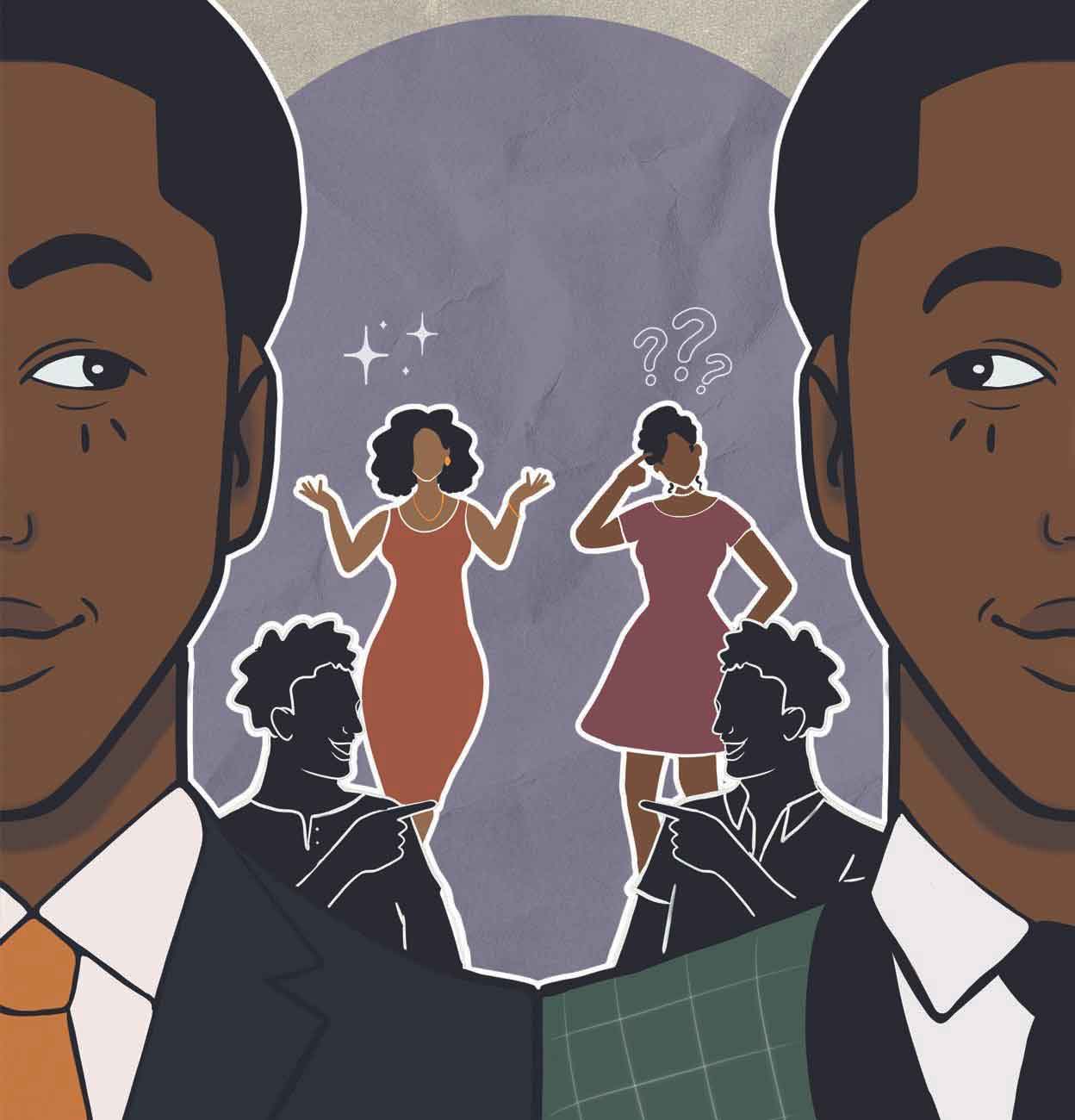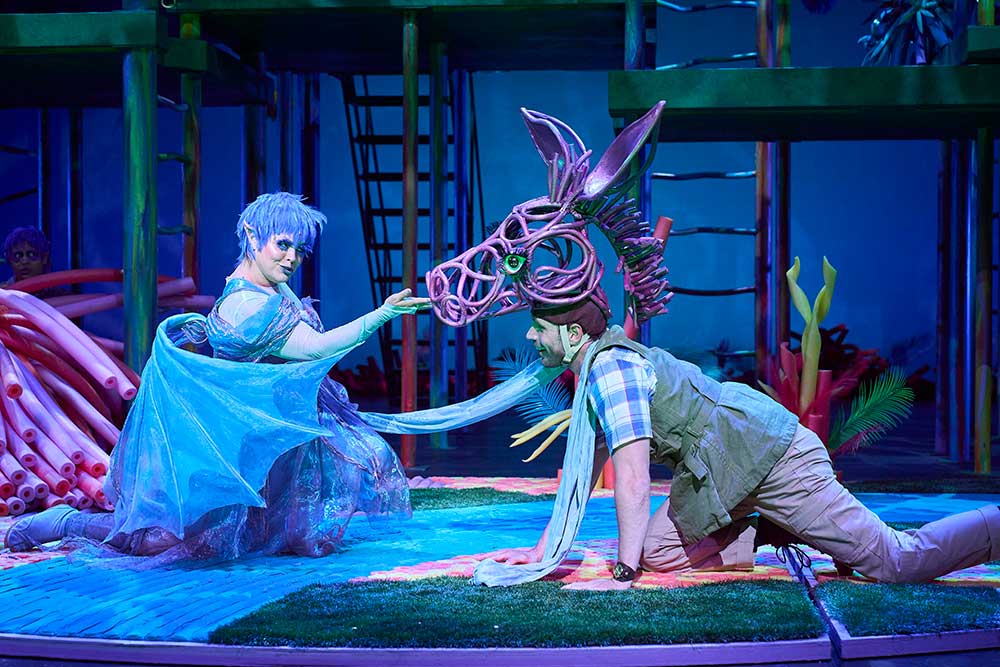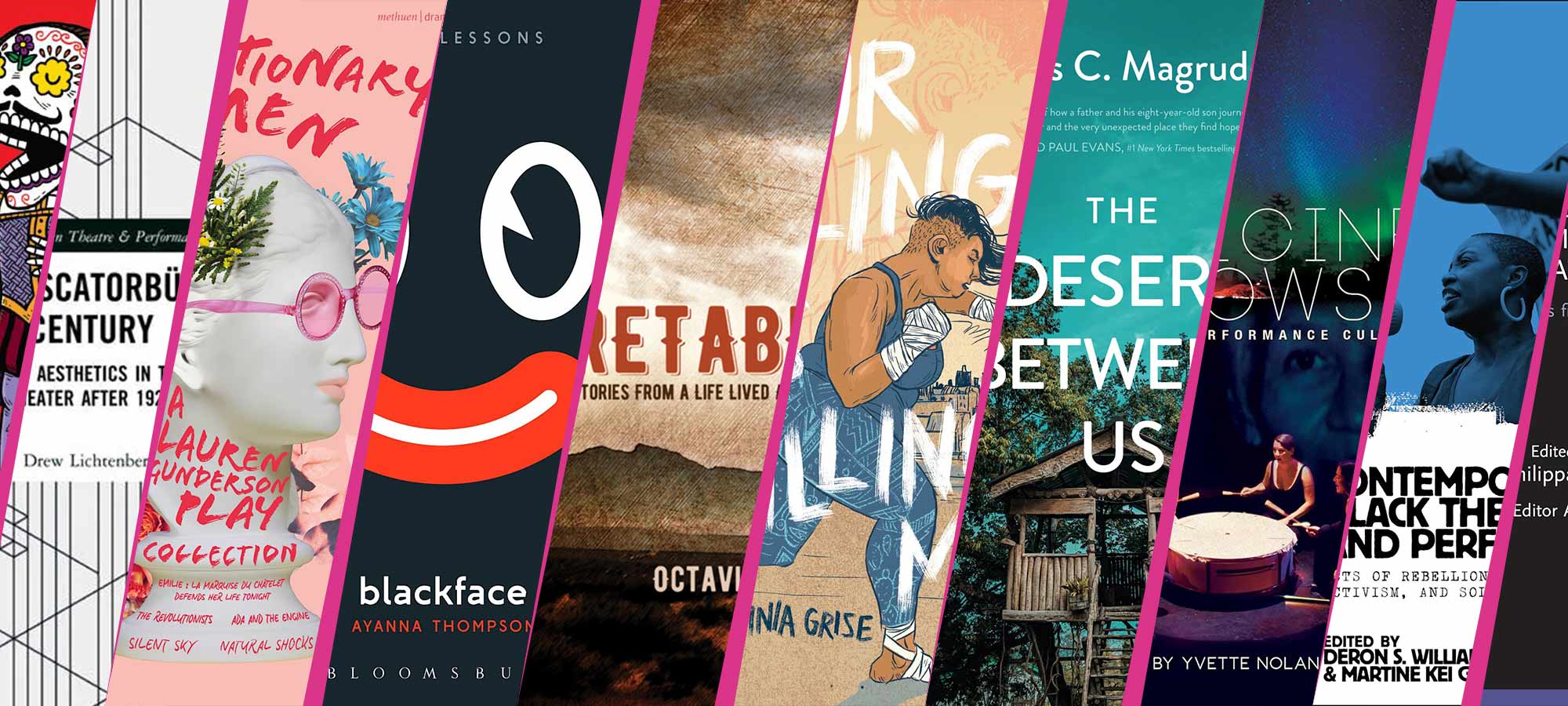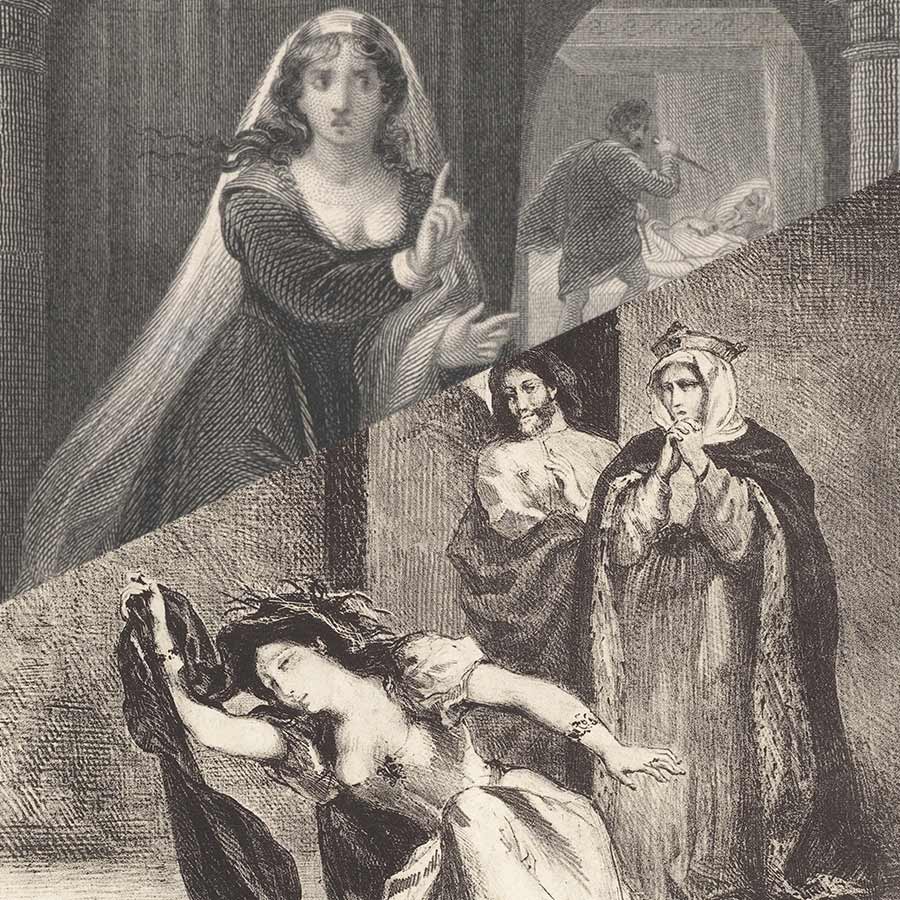Time to Read: 4 minutes
By Alex Vermillion & Whitney Reed
From the themes of love to war to reconciliation, we see characters in the canon move through their stories as reflections of the human experience, including their experiences with Madness. May is Mental Health Awareness Month, and this blog discusses “Madness” in Shakespeare’s plays and how we might view his characters today.
But what is Madness—and how do we view Madness in Shakespeare from a contemporary lens?
The state of “Madness” is a common theme in Shakespeare’s plays. From King Lear to Hamlet to The Taming of the Shrew, the term “mad” has been used to describe various moments of distress, characters acting irrationally, or even characters—particularly women—who contradict conventionality. But what is Madness—and how do we view Madness in Shakespeare from a contemporary lens?
During Shakespeare’s time, Madness was more closely linked to its dictionary definition: the state of being mentally ill, frenzied or chaotic activity, or foolish behavior. We find characters like Kate in Shrew often called “mad” when she refuses to marry or play the part of submissive woman. Scholars have long debated whether Hamlet becomes mad or plays the role of a madman while he wreaks havoc on his court to avenge his father. And Lord and Lady Macbeth are often thought of as going mad with guilt after the murder of Duncan. Madness in Shakespeare’s time was often the plot of a joke (as we see in Shakespeare’s Fools) or even the dramatic result of grief or trauma (such as with Lear or Macbeth).
We asked artist and disability educator Sydney Zarlengo (they/them) how Madness may have been perceived in Shakespeare’s time:
Madness is generally categorized by a perceived marked difference from social norms, making it super culturally specific. And while mental disability has always existed, what behaviors are considered “mad” has changed over time as sociocultural norms have shifted. The way we discuss Madness today is often in relation to capitalism—the reason disability as a social category was created—and this system was just being created during Shakespeare’s time. So in his era we start to see a shift in Madness toward how it impacts one’s ability to work in addition to how it is perceived by society.
In the past, psychiatrists would view abnormal behavior and experiences as defining traits of Madness, encompassing many and various mental health disorders. Today, psychology has evolved to focus more on mental wellness. And the term “mad” has even been reclaimed by the neurodivergent community, starting in 1993 at the Psychiatric Survivor Pride Day. Contemporary Madness studies investigate how labeling mental illness and neurological “deficits” are historically and socially determined by cultural norms.
It’s important that we examine Shakespeare’s work through the lens of Madness. Zarlengo says,
Many media tropes and understandings of human psychology within the Western world find their origins in the works of Shakespeare. Therefore, analyzing his catalog through a lens of Madness is required in order to understand the history of disability media as a whole. Particularly when it comes to how we craft and describe villainy, in that we see a shift over time from him writing villains with marked bodies (via disability and/or race) to villains with marked minds, a transition we have seen in media, and thus our understanding of Madness, over the past 50 or so years.
As we move forward with Shakespearean productions, we now have the opportunity to understand Madness from both a Renaissance perspective and our own contemporary lens. In doing so, we build greater empathy and understanding for his characters while being direct in our on-stage choices, whether as a performer, director, or audience member. And we hope, by doing so, we can create more equitable art that celebrates bodies and minds of all types. With access as a core value at Play On Shakespeare, our goal is not only to make the language more accessible but to uplift accessibility on the stage in all forms.
Are you looking for a deeper dive into the minds of Shakespeare’s characters?
Our Charting Series, led by Play On Shakespeare’s President Lue Douthit, gives a dramaturgical perspective to the motivations of and choices made by some of Shakespeare’s most famous characters. The series delivers context for the ebb and flow of Shakespeare’s plays, specifically examining the language. Don’t miss the first of the Charting Series, which focuses on Macbeth!
Did you know that more than 1 in 5 adults suffers from mental illness?
For more information about about Mental Health Awareness Month, check out the National Alliance on Mental Illness.
Contributor Bio:
Sydney Zarlengo
Sydney Zarlengo (they/them) is an openly queer, trans non-binary, disabled, and autistic multi-hyphenate actor – dramaturg – composer – video essayist – disability educator. Their undergraduate thesis focused on accessible arts education, culminating in the world’s first all-neurodivergent cast and crew production of The Curious Incident of the Dog In The Night-Time and subsequent documentary. Now based in NYC, they are making public accessibility reviews of shows, teaching educators at various universities how to create accessible classrooms and accessible art, and working on a video series unpacking the history of disability in the modern theatre canon. Regardless of medium, their work focuses on looking at the world differently and appreciating every aspect of what it means to be alive – through the beautiful, the messy, and the beautifully messy – with the goal of integrating accessibility and inclusion into mainstream theaters and educational spaces.
Check out their educational videos on Instagram (@disabled.autistic.lesbian) or on their YouTube channel.

-

COMEDY is On the Road!
The Acting Company is about to embark on its U.S. tour of THE COMEDY OF ERRORS in a modern verse translation by Christina Anderson, in repertory with August Wilson’s TWO TRAINS RUNNING. -

Making Play On Podcasts: An Interview with Michael Goodfriend
Play On Shakespeare interviews Michael Goodfriend, Head of Scripted Fiction at Next Chapter Podcasts, to talk all things Play On Podcasts! -

The Language of Midsummer
A MIDSUMMER NIGHT’S DREAM has had multiple productions this year—and one key takeaway has been the benefit of accessible language. -

Level Up Your Reading List
This fall, Play On Shakespeare has the perfect reading list for you, with books written by some of our partner artists!

